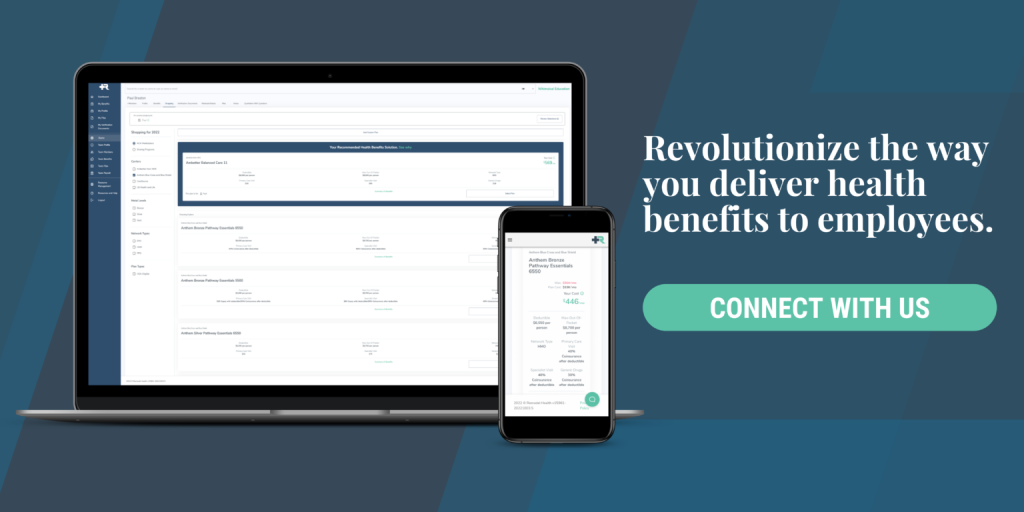
If you’re considering the Individual Coverage Health Reimbursement Arrangement (ICHRA) for your organization, it’s essential to understand the compliance requirements to ensure a smooth and legally sound implementation.
In today’s blog post, we’ll break down the key compliance aspects of ICHRA to help you stay on the right side of the regulations. If you’re new to ICHRA, check out our ICHRA Guide!
Ready to delve into the world of ICHRA compliance? Let’s explore the crucial requirements for employers.
1. Offering Affordable Coverage
Employers offering ICHRA must ensure that the coverage they provide is considered “affordable” under the Affordable Care Act (ACA) guidelines. Affordability is determined by comparing the employee’s required contribution for the lowest-cost silver plan in their area (minus the employer’s ICHRA contribution) to a percentage of the employee’s household income. Employers can use the affordability safe harbors set by the IRS to simplify this calculation.
2. Providing Minimum Essential Coverage (MEC)
ICHRA plans must be integrated with individual health insurance policies that provide MEC, as defined by the ACA. Employees must be enrolled in a policy that meets MEC requirements to participate in the ICHRA and receive tax-free reimbursements.

3. Meeting Employee Notice Requirements
Employers are required to provide written notice to eligible employees at least 90 days before the start of the ICHRA plan year. This notice should include essential information about the ICHRA offering like the offer amount, the start date, and to whom the offer extends. Among other important employee notifications, it should also include instructions on how to purchase individual health insurance. CMS offers a model notice template that organizations can use to ensure they cover all the requirements.
4. Ensuring Employee Class Consistency
Employers offering ICHRA must be careful not to discriminate against any employee class. Employers can define different classes of employees (e.g., full-time, part-time, seasonal) and offer different ICHRA terms for each class, but they must treat all employees within a class consistently.
5. Recordkeeping and Reporting
Employers must maintain records of all ICHRA reimbursements, including documentation of eligible expenses and reimbursement payments. They may also be required to report ICHRA reimbursements on employees’ W-2 forms and ensure compliance with applicable IRS regulations.
Understanding and adhering to the compliance requirements for ICHRA is essential for employers looking to offer this flexible and cost-effective healthcare option. By staying informed and working with qualified benefits consultants or legal advisors, you can ensure a smooth and compliant ICHRA implementation for your organization.
Talk to a Remodel Health benefits expert to learn how we can help you manage an ICHRA plan for your employees!

Important Notice: Remodel Health does not intend to provide specific insurance, legal, or tax advice. Remodel Health always recommends consulting with your own professional representation to properly evaluate the information presented and its appropriate application to your particular situation.
